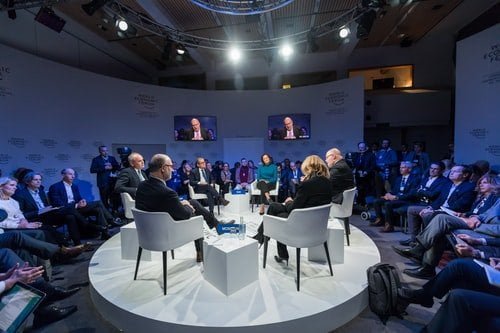Steps to Plan, Promote and Host a Successful Designer Q&A Event
by Arina Smith How to Guides Published on: 21 September 2021 Last Updated on: 22 September 2021

Whether you’re arranging a small meeting or a large conference, event planning is a huge undertaking! Every event, regardless of how small or complicated, involves meticulous planning and organizing. There are several components you should start thinking about early on to make the process as stress-free as possible, from establishing an exact budget to publicizing your event.
Are you looking for tips on how to plan an event or guidance on how to prepare an event? You’ve arrived at the right location. Over the years, we’ve seen a lot of events put on by various organizations, and we’ve discovered a few procedures that are essential to a successful event.
While we can’t list all of the things you’ll need to consider because so much depends on the type of event you’re hosting, we can recommend several best practices that are essential to follow for any event.
Set Event Goals and Objectives

Begin by determining the goals of your event. What is the objective? Why are you organizing this gathering?
Specific and quantifiable objectives should be set. The objectives are the plans and actions you’ll utilize to achieve the goals you’ve set for yourself. Make a list of critical questions to help you explain your objectives. Setting a goal with measurable success metrics can make it easy for your team to ensure that you meet your objectives.
Draft Your Budget
Making a budget is an important first step in event planning since it clarifies other areas of your strategy. Establishing a budget also helps to avoid unpleasant surprises (like running out of money for decor, etc.). You’ll be more successful if you plan out your full budget ahead of time, update it as variables are finalized, and stay close to the process.
You’ll need to revisit the budget as your idea takes shape. Line items may certainly change; just remember to create a detailed budget that reflects any adjustments or modifications. And, because you should never go over your budget, it’s usual for planners to make adjustments to keep you on track.
Check the Location and Have a Plan B

Once you’ve decided on a date, you’ll want to book your venue as soon as possible. Before you can start advertising your event, you need to have a date and place set in stone, thus this duty should be performed as early as possible in the planning process.
As you conduct research and speak with representatives from various venues, make sure to ask as many questions as possible to guarantee a good fit. Inspect the location in person, check for lighting, suitability, and ease of access to the venue. It could turn out that the air conditioning in the hall isn’t working properly, that there are no handicapped restrooms, or that the equipment won’t fit through the door at the most inconvenient time. As a result, double-check such concerns ahead of time.
Delegate Roles To Your Event Team
Many or all of the responsibilities may be handled by you directly for small events. Large events, on the other hand, necessitate a well-organized team to put on the show.
If you’re starting from scratch, it’s critical to assign duties right once to establish accountability. Not only during the preparation stage but also during the event, it is critical to allocate work among team members. Assign responsibilities to each zone. For example, someone is in charge of the registration area, while another is in charge of greeting the speakers, and yet another is in charge of the equipment, food, and press communication.
Identify and Form Partnerships with Sponsors

Are there any groups with which you could collaborate or seek funding to help decrease costs and enhance potential participation? Plus, involving other people or groups in your event gives them a stake in spreading the news and making the event a success — after all, the more the merrier, right?
Attract sponsors if you are unable to invest yourself. While getting solid sponsorship choices for the first event may be difficult, it will be a lot easier for the second year! Remember that sponsorship is about more than just money; it also includes things like media mentions (for example, free pieces in the media in exchange for robotic ticketing), potential relationships with other conferences, and bartering.
Prep Your Designer for the Q&A
Part of your duty as a fashion publicist, just as in a more traditional media training session, is to ensure that your client is a confident communicator who stays on message. Make a list of typical questions such as how to make custom plastic parts are essential for designing and practice giving genuine and intriguing responses.
If you have a moderator, schedule a call or in-person meeting with her ahead of time to go over event expectations, timelines, and to ensure the moderator has all the background information she needs to host the conversation, including an introduction for the designer and a few lead questions to start the Q&A segment in case the audience is shy.
Conclusion
Whatever event you’re planning, stay positive, and don’t be afraid of the unexpected, and your event will go off without a hitch. Good luck.
Read Also:







































































































